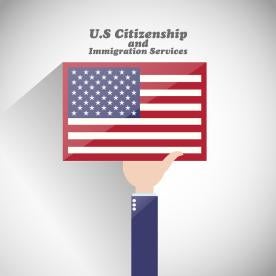On June 17, 2020, United States Citizen and Immigration Services (USCIS) issued Policy Memorandum (PM-602-0114) rescinding the following Policy Memoranda, which was the basis of many challenges and denials against H-1B petitioners in the IT third party placement industry:
-
Determining Employer-Employee Relationship for Adjudication of H-1B Petitions, Including Third-Party Site Placements, issued Jan. 8, 2010, and
-
Contracts and Itineraries Requirements for H-1B Petitions Involving Third-Party Worksites, PM-602-0157, issued Feb. 22, 2018.
The rescission of the memoranda responds to a settlement between USCIS and a third-party IT employer, following the March 10, 2020, decision by the U.S. District Court for the District of Columbia rejecting USCIS policies against H-1B visa holders.
See GT’s May 2020 blog post on this matter.
The Policy Memorandum offers new guidance in place of the rescinded memoranda focusing on the following issues:
-
Employer-Employee Relationship:
-
The new Policy Memorandum clarifies that there is an employer-employee relationship if at least ONE of the “hire, pay, fire, supervise, or otherwise control the work of” factors under 8 CFR 214.2(h)(4)(ii) are present between H-1B petitioner and beneficiary. Petitioners need to submit copies of any written contracts between the petitioner and the beneficiary, or a summary of the terms of the oral agreement if a written contract does not exist, along with the Labor Condition Application (LCA).
-
The petitioner has the burden of proof to establish that employment exists at the time of filing and that it will employ the beneficiary in a specialty occupation.
-
-
Contracts:
-
The H-1B petitioner is not required to submit contracts or legal agreements between the petitioner and third parties. The petitioner, however, still must demonstrate the existence of an employer-employee relationship or non-speculative employment in a specialty occupation (work availability).
-
-
Non-Speculative Specialty Occupation Work:
-
While a petitioner is not required to identify and document the beneficiary’s specific day-to-day assignments, the petitioner must meet all statutory and regulatory requirements (excluding the itinerary requirement) as well as binding court precedent, Administrative Appeals Office (AAO) adopted and precedent decisions, and current USCIS policy guidance concerning H-1B nonimmigrant classification.
-
The guidance concerning benching remains unchanged. Being placed in non-productive status or training for an extended time period, even if paid, may qualify as being “no longer employed in the capacity specified in the petition.”
-
In assessing whether a beneficiary’s non-productive status constitutes a violation of the beneficiary’s H-1B nonimmigrant classification, the officer must determine if the time period of nonproductive status is more than that required for a reasonable transition between assignments.
-
-
Itinerary:
-
USCIS will abstain from requesting the itinerary under 8 CFR 214.2(h)(2)(i) until further guidance is issued on this requirement.
-
-
Limiting Validity Periods:
-
USCIS may issue approvals for H-1B petitions with validity periods shorter than the time period requested by the H-1B petitioner. However, the decision must be accompanied by a brief explanation as to why the validity period has been limited.
-


 i
i


